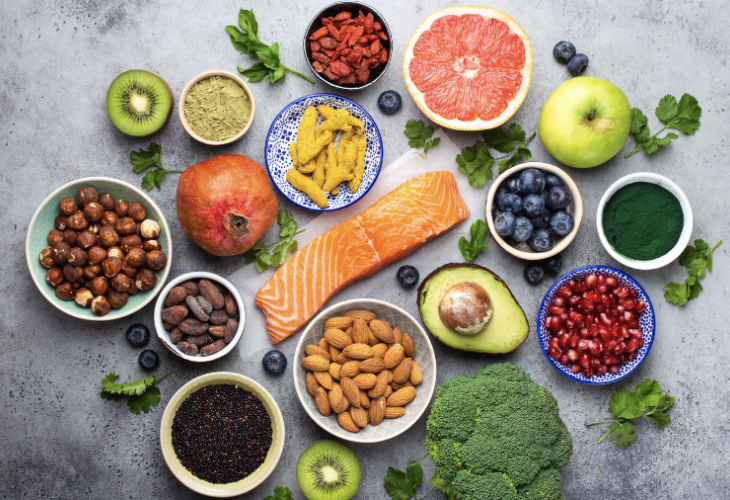The Magic of Superfoods: A Guide to Energizing Your Week
Discover the seven superfoods that can potentially extend your life, and a health tip for those with chronic conditions.

In recent years, there has been a growing trend towards balanced diets that include all essential nutrients or are rich in fiber and protein. While some foods may provide certain vitamins, they might lack other crucial nutrients our bodies need. This is where 'superfoods' come into play, as recognized by science.
Understanding Superfoods
According to Indian nutritionist Dr. Bhatt, superfoods are those with a very high nutritional 'density.' "This means they can provide a significant amount of nutrients with far fewer calories. They are packed with minerals, vitamins, and antioxidants, which are exactly what our bodies need. Antioxidants, natural molecules found in specific foods, help neutralize free radicals in our bodies," he explains.
Dr. Bhatt recommends incorporating superfoods into your weekly diet to not only potentially increase lifespan but also to minimize the risk of diseases as we age. "These seven foods are considered superfoods, and it's important to consume them every week. You could eat them all together or just one from the list, but make sure a week doesn’t go by without having at least one," he advises.
First Superfood: Blueberries
Though they might be pricey, it's worth investing in these delicious purple fruits, as they are rich in fiber, vitamins, and antioxidants. They can help lower blood pressure and reduce the risk of heart disease.
Second Superfood: Goji Berries
These red berries are an excellent source of vitamin C and vitamin E, and they are also high in flavonoids, which contribute to the health of the liver, eyes, and kidneys.
Third Superfood: Various Leafy Greens
Spinach, parsley, broccoli, kale, lettuce, chard, cilantro, dill, mint… the list goes on. If you aim to maintain healthy levels of iron, magnesium, potassium, and calcium, make sure to consume greens weekly.
Fourth Superfood: Salmon
Salmon is extremely high in omega-3 fats, which can help lower bad cholesterol levels and the risk of abnormal heart rhythms.
Fifth Superfood: Nuts
Walnuts, almonds, pecans, and basically all nuts are an excellent source of plant-based protein. They also contain monounsaturated fats, which can help reduce the risk of heart disease.
Sixth Superfood: Cruciferous Vegetables
Broccoli, cabbage, cauliflower, turnips, and more: members of the cruciferous family are considered superfoods because they are an excellent source of fiber and contain phytochemicals like indoles, which contribute to overall body health.
Seventh Superfood: Various Seeds
Sunflower seeds, pumpkin seeds, chia seeds, flaxseeds, and more: eating seeds is linked to a lower rate of cardiovascular disease, high blood pressure, and cholesterol.
Who Should Be Cautious with Superfoods On a Daily Basis?
Dr. Bhatt advises caution, especially for individuals with chronic conditions. "People with kidney disease should consume leafy vegetables carefully, as they might increase potassium to dangerous levels, which could lead to cardiac arrest. Those with liver disease should avoid animal proteins entirely, as it can lead to hepatic encephalopathy - loss of brain function when a damaged liver doesn't remove toxins from the blood. If you have kidney stones, avoid foods high in oxalate, like nuts, as their consumption could lead to stone formation in the kidneys," he warns.

